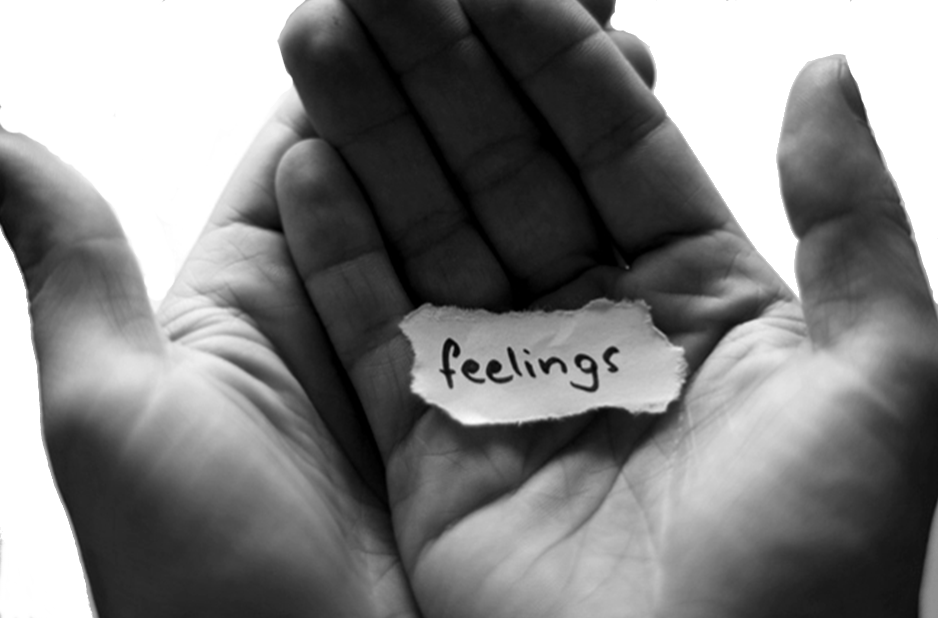
Brace yourself. It’s time for us to talk about the “F” word.
No, not that one.
The “F” word we’re going to talk about is “Feelings”.
A lawyer friend told me about an experience she had when she was just starting out as a young litigator. Standing up in open court she said to the judge, “I know you feel that way, but…” “Counselor!” the judge swiftly admonished. “This isn’t about feelings! This is a court of law!”
Oops.
Law is not a profession which admits the function and value of feelings. Our training teaches us to expunge them from our minds and our work.
But as human beings we ignore our feelings at risk to our overall well-being. They’re not just there to make us feel randomly good or bad. In fact, feelings play a critically important role in our survival as individuals and a species. Their evolutionary function is to provide us with information about our external and internal environment. Feelings are supposed to guide our thinking and actions. (Feelings are also known as emotions. The root of the word emotions is to stir up, or move.) This feels good = move towards it. This feels bad = move away from it.
Now of course this doesn’t mean we should jettison our minds. We need our minds to observe and reflect upon our feelings. But living without awareness of our feelings leaves us without an accurate picture of our environment. Would you go to trial without deposing the opposing party? Would you do a residential closing without checking on whether the property taxes were current? Of course not! So why would you ignore your feelings in deciding how to conduct your work (or personal) life?
Feelings are normal. They are valuable road signs to our best future. This is true even, and perhaps especially, about our uncomfortable feelings.
In my last column I wrote about the special risk of isolation experienced by solo practitioners. One reason isolation is so risky from a mental health perspective is because it creates feelings. And one of those feelings is loneliness. Loneliness is a feeling of sadness or distress caused by being by yourself, or feeling disconnected from the world around you. (We all know it is possible to feel lonely even when we are surrounded by people. It’s that dreaded “lonely in a crowd” feeling.) Spending more time alone increases the likelihood that you will feel lonely.
In this case, your feelings of loneliness are designed to alert you to take action to increase your sense of connection with others. Listen to this podcast where Susan Cartier Liebel and I discuss suggested action steps.
But what if you’ve been taught to ignore your feelings, or treat them as worthless or a sign of weakness? You may eventually stop noticing you’re lonely. Or if you notice, you may ignore or dismiss the feeling.
Enter, stage left, depression. Do we all know by now that lawyers are 3.6 more likely to suffer from depression than non-lawyers? Or that some studies estimate a whopping 40% of law students suffer from depression by the time they graduate from law school?
Could there be a connection between the high rate of depression experienced by lawyers and the legal culture which teaches them to denigrate and deny their feelings? The answer is a resounding yes. This may seem a bit paradoxical to those who have experienced depression because on the one hand, depression is an experience that seems awash with feelings. You feel, basically, like crap. Black, dark, hopeless, lethargic. Depression is not a neutral state.
But in fact these awful depressive feelings are usually the result of much deeper feelings that have been blocked from awareness. Like sadness and grief. Or anger, annoyance and resentment. Or hurt and pain. Feelings that we have stuffed, stuffed, stuffed down from our consciousness until there is nothing left to feel but a sense of trapped and hopelessness.
There are other factors that contribute to depression that we’ll be discussing in future columns, including but not limited to the biochemical. But as lawyers, we need to start seriously questioning how we look at and understand the role of feelings in ensuring our well-being.
Want to take some action steps towards improving your “feeling health”? Start keeping a simple, daily feeling journal. Name your feelings. Notice if you dismiss or have contempt for feelings (yours or anyone else’s). Try to befriend your feelings. Assume they contain important information that will improve your life.
How are you feeling right now?
If you’d like to hear a more expanded and in depth version of this topic, listen to our guest podcast on this subject.
All opinions, advice, and experiences of guest bloggers/columnists are those of the author and do not necessarily reflect the opinions, practices or experiences of Solo Practice University®.





















Comments are closed automatically 60 days after the post is published.